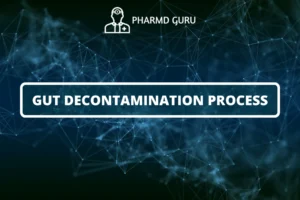Acute poisoning with alcohol, including ethanol and methanol, can have serious health implications. Both substances affect the central nervous system and can cause a range of symptoms and complications.
SCROLL DOWN TO THE BOTTOM OF THE PAGE FOR ACTUAL NOTES
TABLE OF CONTENTS:
- Introduction
- Alcohol Poisoning: Ethanol
- 2.1. Effects of Ethanol Poisoning
- Methanol Poisoning
- 3.1. Effects of Methanol Poisoning
- Clinical Symptoms of Acute Poisoning
- 4.1. Alcohol Poisoning Symptoms
- 4.2. Methanol Poisoning Symptoms
- Management of Acute Poisoning
- 5.1. Immediate Actions
- 5.2. Medical Interventions
- 5.3. Supportive Care
1. Introduction
Acute poisoning with alcohol, including ethanol and methanol, can have serious health implications. Both substances affect the central nervous system and can cause a range of symptoms and complications. Recognizing the clinical symptoms and understanding the appropriate management strategies for alcohol poisoning is crucial for timely intervention and ensuring the best possible outcomes. This article provides an overview of the clinical symptoms associated with acute poisoning of ethanol and methanol and explores the recommended management approaches.
2. Alcohol Poisoning: Ethanol
Ethanol is the primary psychoactive ingredient in alcoholic beverages. While moderate consumption of alcohol is generally considered safe for most individuals, excessive intake can lead to alcohol poisoning, which can be life-threatening.
2.1. Effects of Ethanol Poisoning
Excessive consumption of ethanol can result in the following effects:
- Central nervous system depression
- Impaired coordination and motor function
- Slurred speech and confusion
- Altered judgment and decision-making
- Nausea and vomiting
- Respiratory depression or slowed breathing
- Hypothermia (low body temperature)
- Loss of consciousness or coma in severe cases
3. Methanol Poisoning
Methanol is a toxic alcohol commonly found in various industrial products and some illegally produced alcoholic beverages. Methanol is highly poisonous and can cause severe health complications.
3.1. Effects of Methanol Poisoning
Methanol poisoning can lead to the following effects:
- Central nervous system depression
- Headache and dizziness
- Nausea, vomiting, and abdominal pain
- Visual disturbances or blurred vision
- Respiratory distress
- Metabolic acidosis (increased acidity in the blood)
- Seizures and coma in severe cases
4. Clinical Symptoms of Acute Poisoning
4.1. Alcohol Poisoning Symptoms
Acute alcohol poisoning may present with the following symptoms:
- Confusion and disorientation
- Vomiting and inability to wake up
- Slow or irregular breathing
- Cold, clammy skin
- Pale or bluish skin color
- Seizures or unconsciousness
4.2. Methanol Poisoning Symptoms
Symptoms of methanol poisoning may include:
- Headache and dizziness
- Nausea, vomiting, and abdominal pain
- Visual disturbances or changes in vision
- Rapid breathing or shortness of breath
- Fatigue and weakness
- Seizures or unconsciousness
5. Management of Acute Poisoning
5.1. Immediate Actions
In cases of acute alcohol or methanol poisoning, it is essential to take the following immediate actions:
- Call Emergency Services: Contact local emergency services or a poison control center immediately to seek professional medical guidance.
- Provide Information: Provide detailed information about the type of alcohol ingested and the individual’s current symptoms.
5.2. Medical Interventions
Medical professionals may employ the following interventions for managing acute alcohol or methanol poisoning:
- Gastric Decontamination: Depending on the circumstances, gastric decontamination techniques such as activated charcoal administration or gastric lavage may be considered to reduce further absorption.
- Administration of Antidotes: In the case of methanol poisoning, administration of antidotes like fomepizole or ethanol may be necessary to inhibit the metabolism of methanol and prevent its toxic effects.
- Supportive Measures: Supportive care measures, including monitoring vital signs, providing oxygen therapy, managing seizures or respiratory distress, and correcting acid-base imbalances, are crucial for stabilizing the individual’s condition.
5.3. Supportive Care
Supportive care is essential in managing acute alcohol or methanol poisoning and may include:
- Monitoring: Regular monitoring of vital signs, including heart rate, blood pressure, and oxygen saturation.
- Airway Management: Ensuring a patent airway and providing respiratory support if necessary.
- Fluid and Electrolyte Balance: Maintaining proper fluid and electrolyte balance to prevent complications and support organ function.
- Psychological Support: Offering psychological support to the individual and their family during the recovery process.
ACTUAL NOTES




